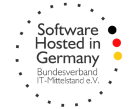Commerce Is Getting a Mind of Its Own
Not long ago, the term “agent” in commerce typically referred to people—sales agents, procurement agents, insurance agents. But as artificial intelligence rapidly moves from prediction to decision-making, the meaning of “agent” is evolving. In 2025 and beyond, agents aren’t just humans—they’re autonomous digital systems acting on our behalf.
Welcome to Agentic Commerce: a paradigm where AI-powered agents autonomously perform commercial tasks, including purchasing, negotiating, and transacting—often without human intervention.
While this shift opens up transformative efficiency gains, it also challenges the foundational assumptions of traditional payment processing. In this article, we explore the concept of Agentic Commerce, its implications for transaction systems, and what it means for PSPs, merchants, developers, and regulators.
What Is Agentic Commerce? A Definition That Matters
Agentic Commerce refers to economic transactions executed by autonomous software agents acting on behalf of humans or organizations. These agents can:
- Discover products or services
- Compare options
- Negotiate price or terms
- Execute purchases
- Manage payments
- Coordinate post-transaction logistics (e.g., returns or renewals)
They don’t just follow rules. They learn, reason, and act with purpose.
Agentic Commerce is not the same as automation or scripted bots. It implies autonomy, agency, and intent—powered by systems like:
- Large Language Models (LLMs) with decision trees
- Multi-agent coordination frameworks
- Embedded payment APIs
- Digital identity and trust infrastructure
- Blockchain-based auditability and smart contracts
In short, commerce becomes machine-initiated, human-approved—or sometimes not even that.
From API Economy to Agentic Economy
The API economy made it possible for services to talk to each other. Agentic Commerce goes further—it allows them to think and transact with minimal oversight.
This marks a major leap in the evolution of commerce:
| Era | Description | Control |
|---|---|---|
| Manual Commerce | Person-to-person | Full human control |
| E-Commerce | Human-initiated, digital | Human + automated system |
| Programmatic Commerce | Trigger-based (e.g., subscriptions) | Human-defined rules |
| Agentic Commerce | AI agents acting independently | Delegated human intent |
This shift requires a radical rethink of payment infrastructure—not just speed and UX, but governance, liability, and trust.
Implications for Payment Processing: 6 Critical Shifts
1. Transactions Will Be Initiated by Non-Human Agents
In Agentic Commerce, LLMs or autonomous systems will be payers, not humans. This demands:
- Agent-based identity systems
- Agent authorization and limits
- Consent protocols and revocation mechanisms
Payment platforms must distinguish between who pays and on whose behalf. Merely authenticating a human won’t be enough. We’ll need ways to authenticate machine agents tied to individuals or organizations.
2. Trust Frameworks Must Evolve Beyond KYC
Know Your Customer (KYC) won’t be sufficient in agentic flows. Instead, systems will need KYAI: Know Your Agent’s Intent.
- Who deployed the agent?
- What are its authorization boundaries?
- Can it be held accountable or revoked?
This introduces new layers of digital identity, like verifiable credentials, agent registries, and delegated authorization ledgers.
3. Payment Orchestration Must Be Context-Aware
Agents transact based on changing inputs—price shifts, inventory data, delivery forecasts, and usage metrics.
This creates a need for context-aware payment systems that:
- Allow dynamic pricing adjustments
- Handle conditional approvals (e.g., “only buy if price drops below €100”)
- Support AI-initiated refunds or renegotiations
Novalnet’s intelligent payment routing and event-driven architecture already moves in this direction—but agentic ecosystems will require even deeper orchestration logic.
4. Recurring Payments Will Morph into Autonomous Usage Payments
In subscription models today, billing is time-based. In agentic systems, it will be usage- or outcome-based—triggered by intelligent agents as needed.
Example:
- A fleet management AI might reorder electric charging credits only when the charge falls below a threshold.
- An agent managing home utilities may auto-negotiate energy rates daily and switch providers autonomously.
This necessitates micropayment-ready, real-time, and programmable payment interfaces—with AI at both ends of the transaction.
5. Fraud Detection Must Understand Intent, Not Just Patterns
Traditional fraud systems detect anomalies in human behavior. In agentic commerce, “abnormal” might be normal—because agents will have unusual but authorized patterns.
Fraud models must evolve to:
- Understand agent intent signatures
- Monitor deviation from declared scope
- Link behavior to underlying authorizations
This will likely involve multi-agent behavioral analytics and real-time explainability of agent actions—far beyond current rule-based fraud filters.
6. Regulatory Pressure Will Be Profound—and Nuanced
Regulators will ask difficult but necessary questions:
- Can an agent legally enter into a contract?
- Who is liable for a faulty agent-triggered payment?
- What happens when agents from two countries transact across borders?
Expect new PSD revisions, AI-specific payment clauses, and perhaps even agent identity licensing frameworks under EU Digital Identity regulations.
As a BaFin-licensed Payment Institution, Novalnet is closely monitoring these legal shifts and advocating for agent-aware compliance frameworks that don’t stifle innovation.
Enabling Agentic Commerce: What Businesses Must Do Now
If you’re a merchant, marketplace, or platform provider, here’s how to prepare:
Agent-Ready APIs
Design payment and billing APIs with clear agent authorization scopes and identity binding.
Dynamic Consent Interfaces
Build intuitive dashboards where users can see what their agents are authorized to do, revoke permissions, and set spending caps.
Event-Driven Billing Systems
Move from static billing to event-driven architectures, where pricing, triggers, and actions are programmable.
Auditability & Explainability
Ensure all agent-initiated payments are traceable and human-explainable. Log metadata, not just amounts.
Cross-Industry Standards Adoption
Engage with initiatives like the W3C Decentralized Identity (DID), Open Agents Framework, and EMVCo agent tokenization pilots.
How Novalnet Is Preparing for Agentic Commerce
At Novalnet, we are architecting for a future where:
- Agents can transact securely on behalf of verified users
- All transactions are auditable, explainable, and compliant
- Merchants can interact with AI-native interfaces
- Payment orchestration adapts in real-time to agent-driven triggers
Our roadmap includes:
- Agent-specific authentication layers
- Programmable payment contracts (beta)
- Identity-linked, zero-trust access for intelligent APIs
- Real-time, AI-backed fraud reasoning engines
- Integration pilots with autonomous IoT systems and software agents
We see Agentic Commerce not as a novelty, but as the next frontier in how economies operate.
Agentic Commerce Is Inevitable. Preparedness Is Optional.
The rise of autonomous commerce agents will do for payments what APIs did for banking—reshape everything from who initiates transactions to how value is exchanged.
But the future doesn’t arrive all at once. It arrives through preparedness.
For merchants and PSPs, the winners will be those who:
- Adapt early, not react late
- Balance autonomy with control
- Build trust into machines, not just people
- Design for intelligence, not just integration
At Novalnet, we’re already building this future—so that your business can enter it confidently.
Need to prepare your payment infrastructure for the future of Agentic Commerce?
Get in touch with Novalnet’s innovation team today – sales@novalnet.de.

Antony Robinson is an experienced IT expert, information architect and a customer experience evangelist. He has over 30 years of experience in web technologies, user experience, media, and marketing. Antony is currently the CMO of Novalnet AG, a fintech company in Germany. As CMO, he leads the company’s marketing strategy and fosters collaborations. Antony’s expertise and dedication to technology and innovation make him a valuable leader in his field.












